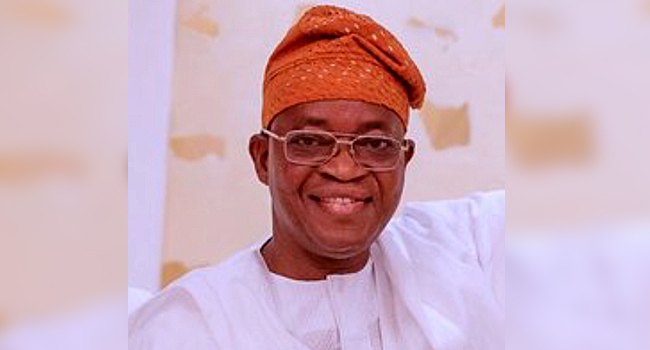Osun Election: Oyetola Asks Appeal Court To Reverse Tribunal’s Decision

The Osun State Governor, Adegboyega Oyetola, has asked the Court of Appeal in Abuja to reverse the majority judgment delivered on March 22nd 2019 by the Osun State election tribunal.
The tribunal had, by a majority judgment given by two of its three members, voided the election of Oyetola, pronounced Senator Ademola Adeleke of the People’s Democratic Party (PDP) winner and asked the Independent National Electoral Commission to issue him a certificate of return.
In a 39-ground notice of appeal filed by his team of lawyers, led by Wole Olanipekun, Governor Oyetola faulted the majority judgment, given by Justices Peter Obiora and Anyinla Gbolagunte, on the grounds that it was perverse, replete with contradictions and not supported by evidence led by the petitioners.
Governor Oyetola wants the Court of Appeal to uphold his appeal, set aside the majority judgment and dismiss the October 16, 2018 petition by PDP and senatir Adeleke.
The governor said his complaint, in the appeal, was against the entire majority judgment, except where the tribunal held that it lacked jurisdiction to set aside INEC Guidelines; that the allegation of over voting was not proved; that the petitioners did not prove voided votes and other parts of the judgment where the tribunal agreed with their arguments.
READ ALSO: We Believe Oyetola Will Not Drag His Integrity To The Mud – Osun PDP
The governor is contending, in his first ground of appeal, that the entire of the majority judgment is a nullity, because it was written and delivered by Justice Obiora “who did not participate in all the proceedings of the tribunal and who was not present when all the witnesses gave evidence.”
He noted that Justice Obiora was absent on February 6 this year when the respondents witnesses 12 and 13 testified and tendered exhibits, which the tribunal admitted in evidence.
The appellant argued that, having not attended the tribunal’s siting on February 6, 2019, Justice Obiora could not seen the two witnesses and was unable to examine their demeanour, as required, and therefore, unlawful for the judge to have authored a judgment in which he reviewed the evidence given by the witnesses.
He also argued that the tribunal, in its majority judgment, erred in law and acted without jurisdiction when it accepted the petitioners’ complained of non compliance with the provisions of Electoral Act in relation to the September 22, 2018 governorship election in Osun State and on that basis proceeded to nullify his election.
It was equally the appellant’s contention that the tribunal acted without jurisdiction by basing its decision to uphold the petition and set aside the return of the appellants on the basis of allegation of non-compliance with the Electoral Act, in relation to the September 22 governorship election.
The appellant noted that, no where in the entire petition, did Adeleke and the PDP complained about non-compliance with the provisions of the Electoral Act in relation to the September 22, 2018 election.
He added that the only ground, in the petition, alleging non-compliance with the provision of the Electoral Act was in relation to the rerun election held on September 27, 2018.
The appellant further argued that the tribunal erred in law when it cancelled elections in 17 polling units on the mere allegation of improper ballot accounting and accreditation details.
He argued that since all the witnesses called by Senator Adeleke and the PDP admitted that the voting process was regular; that votes scored by each party were publicly announced after counting and that the announced scores of parties were truly reflected on Forms EC8A tendered by petitioners, the tribunal was wrong to have proceeded to cancel results.
Governor Oyetola also faulted the tribunal’s decision to void the rerun election when the petitioners did prove that there were elections in the seven polling units where the rerun election took place and that the results were wrongly cancelled.
He noted that the petitioners did not plead nor adduce evidence that the presiding officers of the affected seven polling units had ab initio approved of the elections at the polling units. He added that the petitioners did not tender the results from the seven polling units.
The appellant also noted that the petitioners did not calling their agents from the affected polling units as witnesses; did not tender documentary evidence to show that it was the returning officer that unilaterally cancelled the elections.






